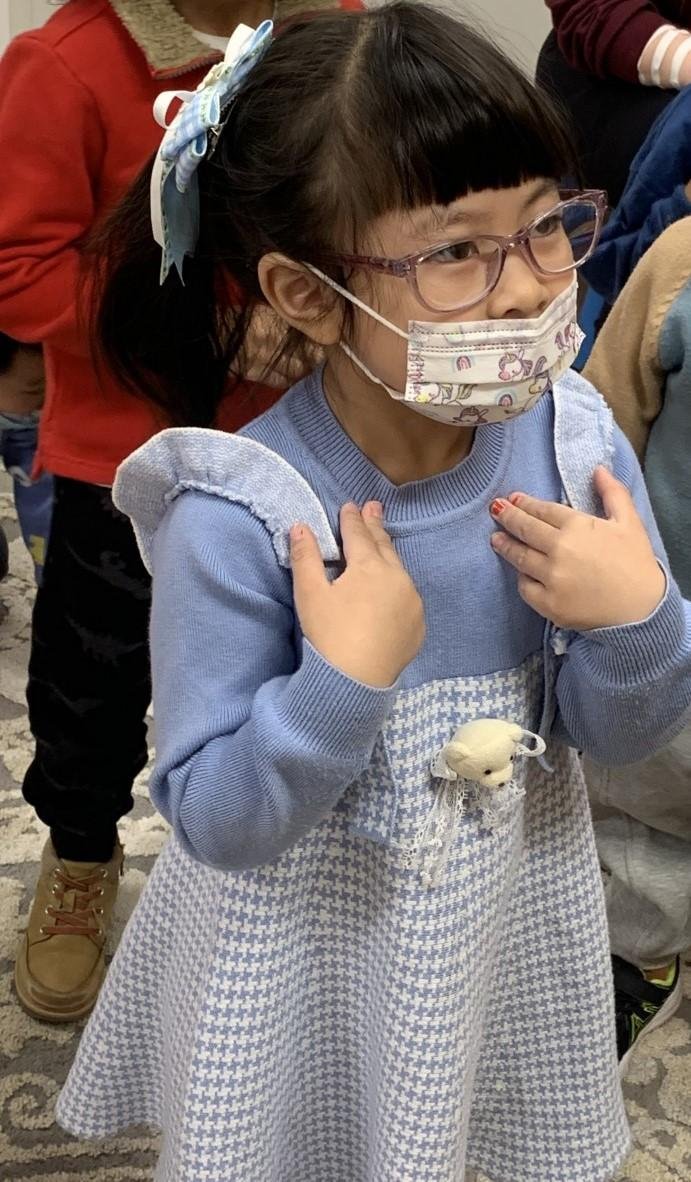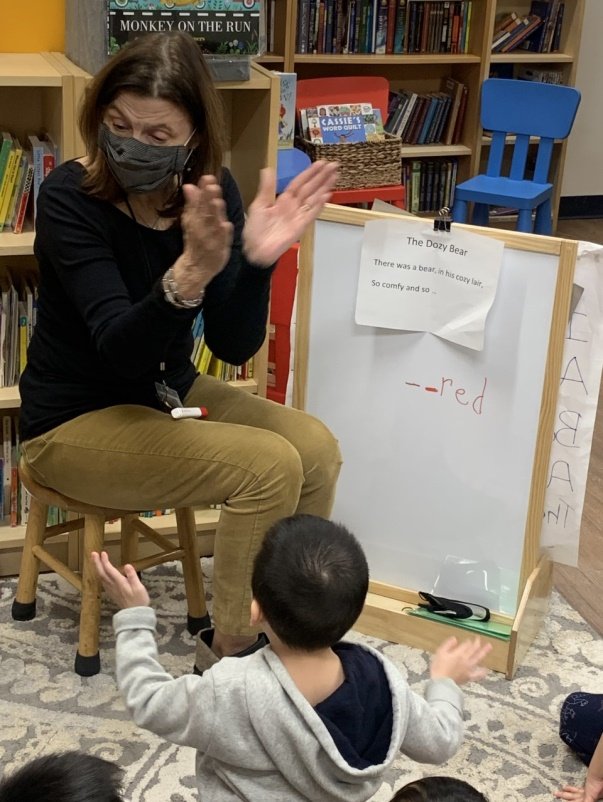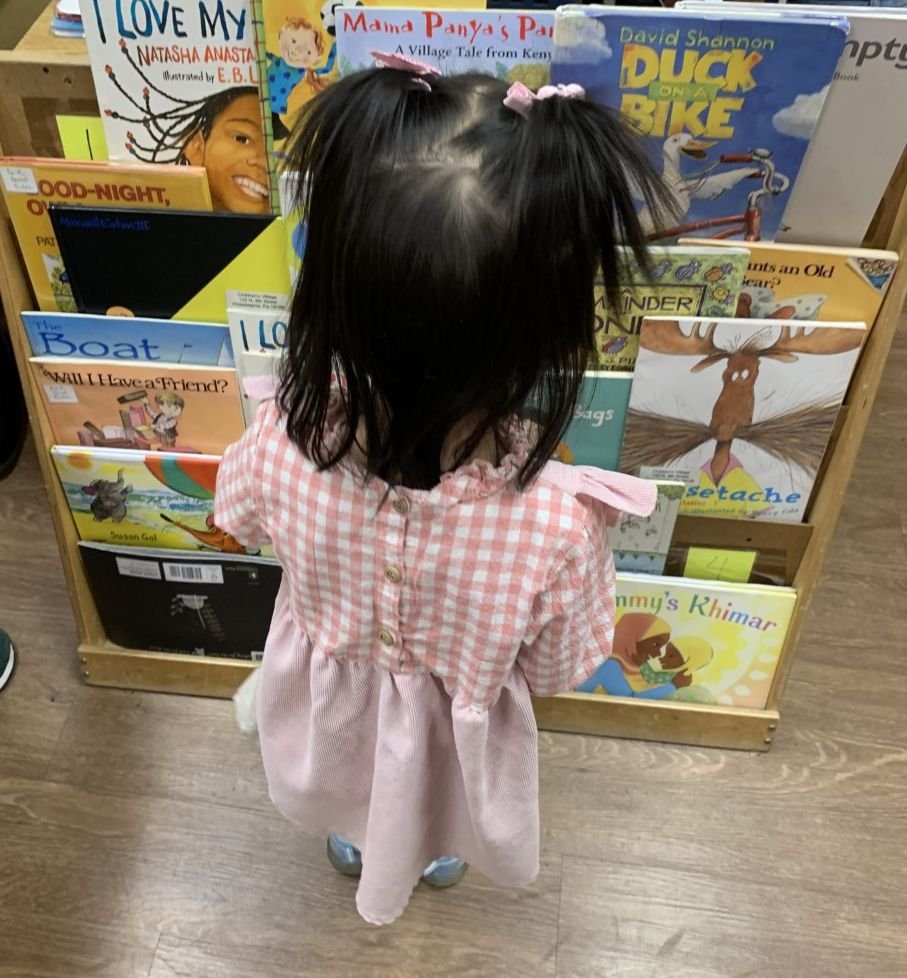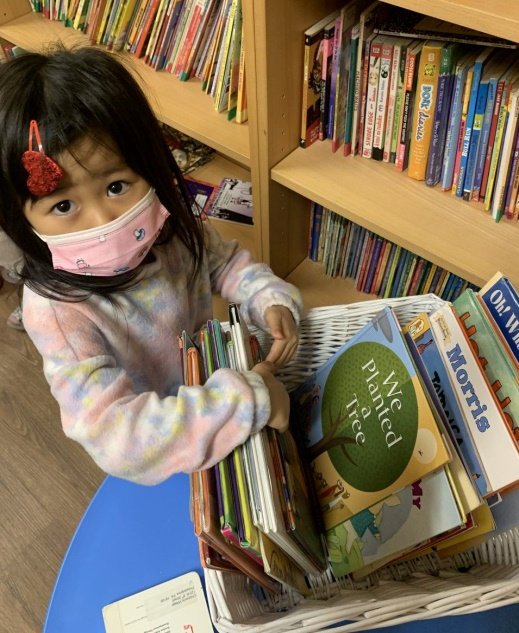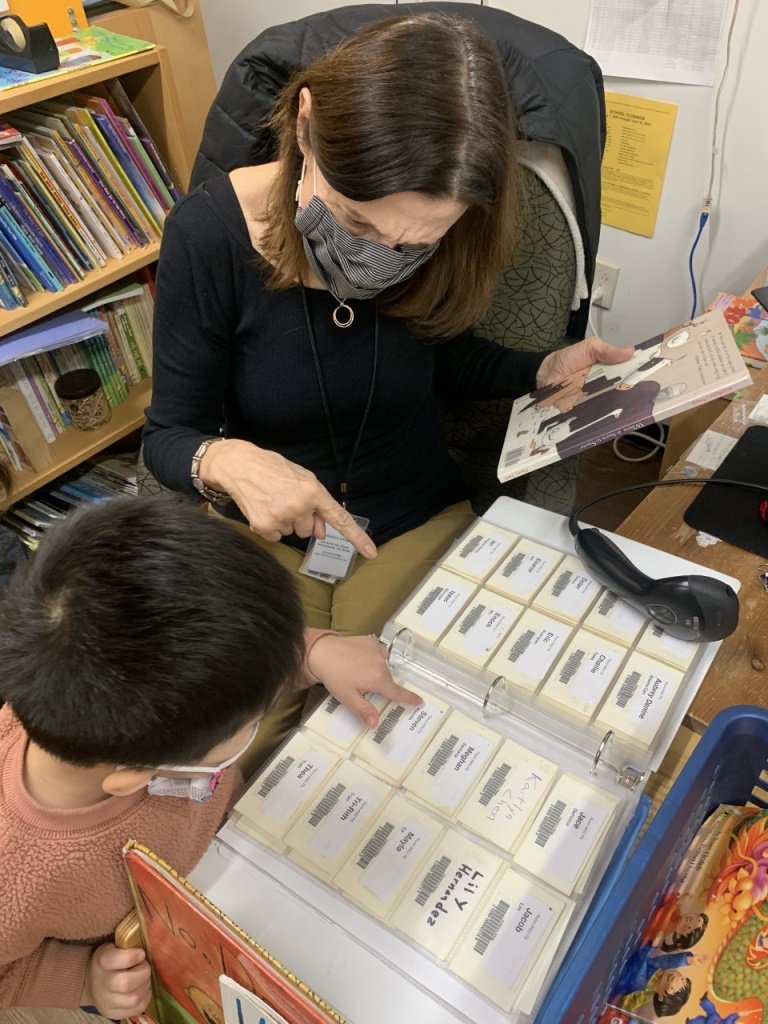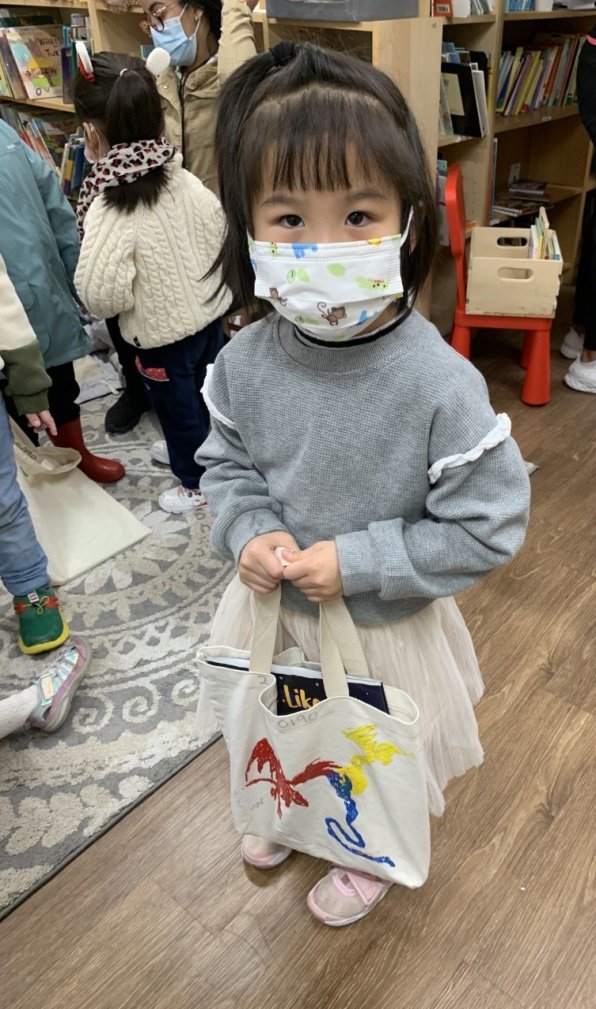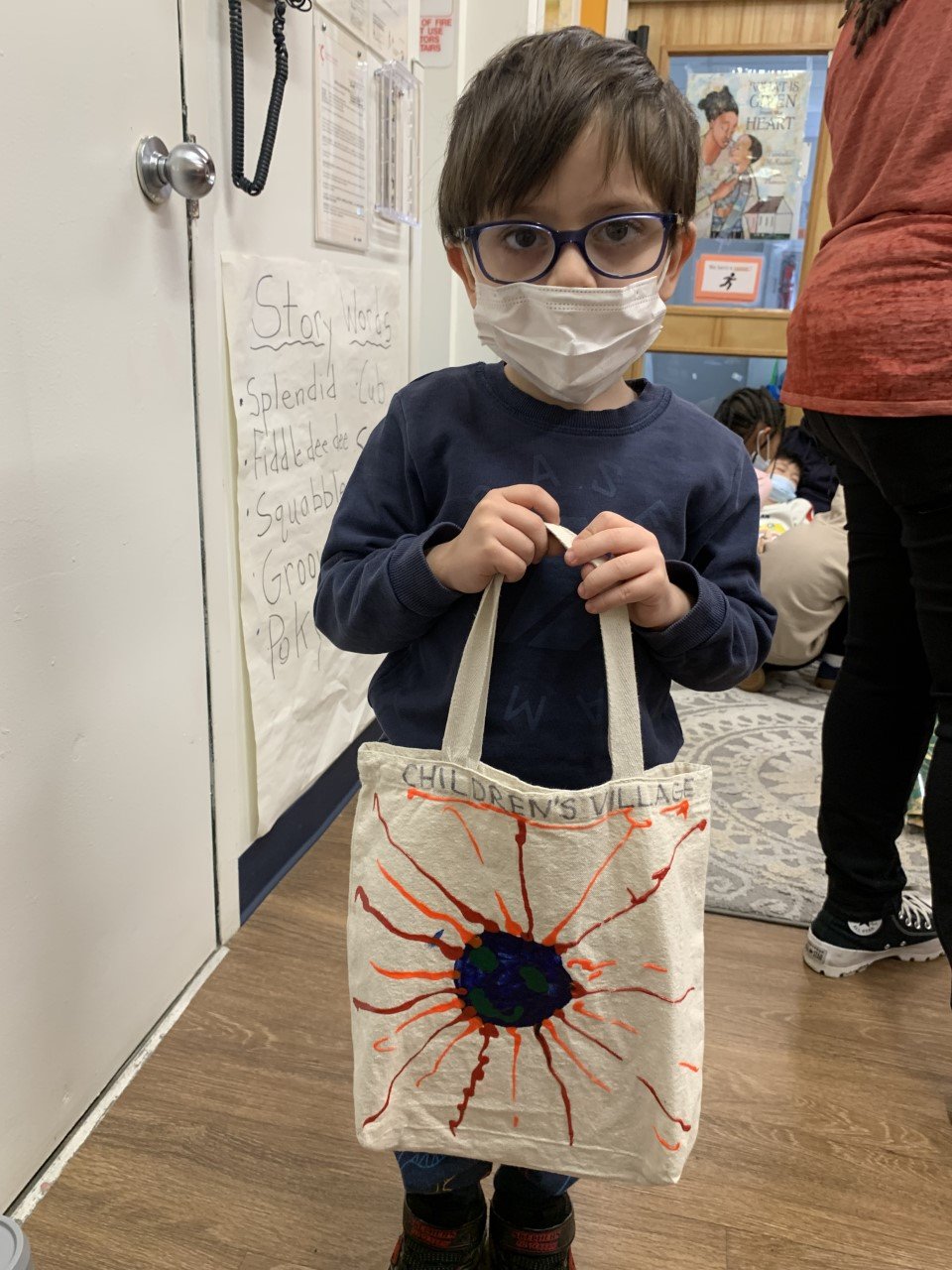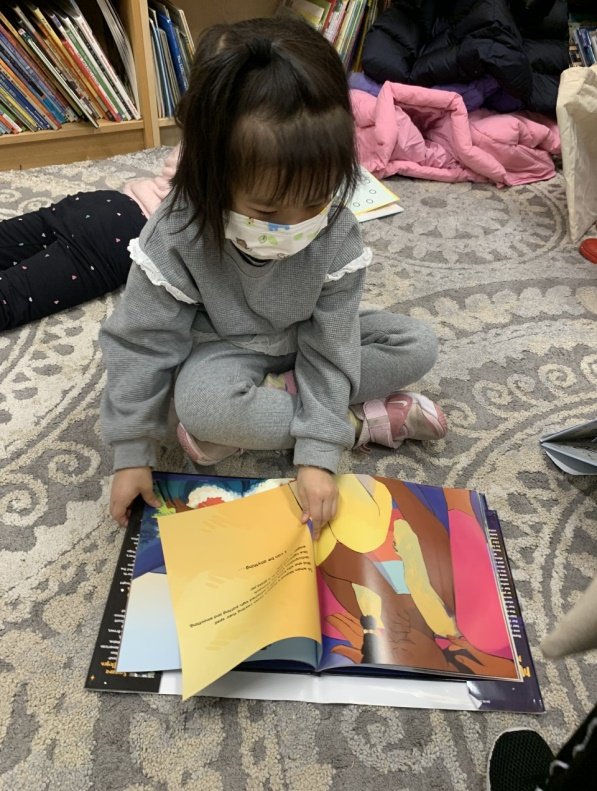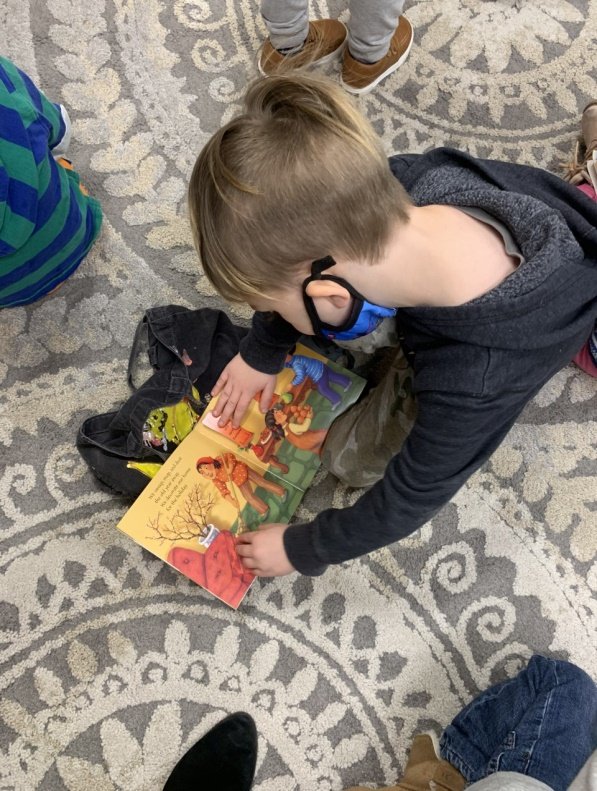Nurturing a Love of Stories: Children's Village on-site PNC Grow Up Great Lending Library
Children's Village PNC Grow Up Great® Lending Library
Encouraging an Early and Lasting Love of Books
Sitting cross-legged on the plush library rug, the preschoolers focus on librarian Denise Ellis, who is perched on a low stool and displaying the picture book, Bear Snores On.
“Creak!” Ms. Ellis slowly says and the children echo the word in unison. “Now that we’ve made our story opening sound, let’s begin.”
She flips to the first page, an illustration of winter woods. “Oh, look at this!” the librarian exclaims, pointing to a den and tracks leading to it. “This is a place where animals live. Some people call a den, some call it a cave, and some call it a lair. Who do you think lives there?” says Ms. Ellis.
“A bear!” says a student.
“A bunny!” responds another.
Turning the page, Ms. Ellis says, “Let’s find out!”
Building children's interest even before she utters the book’s first word, Ms. Ellis' aim extends beyond teaching the “mechanics” of reading:
Ms. Ellis wants young learners to fall in love with stories.
“My goal is to excite children to explore books. If they are motivated to do something, they are much more likely to be receptive to learning more. I want children to have a warm and enduring relationship with stories and these early experiences can make a lasting impact,” she explains.
A student helper holds a card with questions about the book, one of many ways Ms. Ellis builds children's interest in the story. The activity also teaches children who creates a story.
To engage and delight the children, Ms. Ellis embeds an array of reading strategies into story time, including: asking open-ended and factual questions; inviting children to make predictions and join in on repeated text; using interesting voices and gestures; introducing vocabulary; and connecting the book selection to the class’ monthly theme, in this case, ‘Seasons.’
Building Upon Children's Classroom Experiences
Children's Village preschool teachers use the Blueprint for Early Literacy curriculum, which is based on monthly themes that are inspired by children's books. Teachers provide literacy-rich experiences that are reinforced and extended in the library.
"When children visit the library, my job is so much easier due to teachers' routinely reading stories. Everything I do in the library has been previously introduced in the classroom and then reinforced by teachers multiple times throughout the week. Our teachers set the stage for meaningful library experiences for the children," says Ms. Ellis.
Singing Songs and Reciting Poems: Learning About Stories and Fostering Cooperation
During their weekly library visits, the preschoolers also sing songs and recite poems. Many childhood songs are little stories, and listening to and singing them help children learn about story structure and sequencing.
The songs also foster cooperation. “We are part of a community and opening the visits with a song pulls the children together. It is important that they each have a voice and also cooperate in a group,” says Ms. Ellis.
(above) The song and poems include accompanying finger play. Such movements support fine motor skill development and hand-eye coordination. The lyrical rhythms help with vocabulary and memorization.
A Powerful Reading Motivation Tool: Choosing a Story Independently!
The preschoolers' visit culminates with a powerful reading motivation tool: children selecting a book to take home and share with their families. Respecting the diverse languages and cultures of the Children’s Village community, many of the books are in languages other than English.
“Children are empowered to choose a book and as the weeks pass, their selections are more intentional. It's such fun to see them have an opinion about what they want to read!" says Ms. Ellis.
The students carry this excitement back to the classroom and home. "The students are thrilled to share the book they have chosen. It's the first thing they do when they see their family member at pick up. It truly sparks delight and that joy spreads into the home. Many children love their selection so much that they want to keep it for two weeks instead of the one-week borrowing period," says Sarah Lu, Lead Preschool Teacher, who also speaks from a parent's perspective; her son is a Children's Village preschooler.
(above slide show,) Many of the preschoolers’ books are housed in front-facing books shelves and baskets so young children do not have to pull books out by their spine to look at them.
The library books are electronically catalogued. A preschooler points to his name during book check out.
After book check out, the preschoolers receive library tote bags to carry their selection home. Children's Village school-age (K-6th) students decorate the canvas bags with designs of their own choosing.
(above) Eager to explore their books, children spread out on the library rug before returning to their classroom.
Fostering Social-Emotional Development
The library experience also fosters social-emotional learning (SEL), which complements teachers' SEL classroom approaches.
“It’s important for children to go someplace new. The library experience has helped my students better respond to new routines and instructions and gain an understanding of the appropriate behavior in this environment," says Larry Everett, Lead Preschool teacher.
"For example, Denise makes the opening book sound of ‘creak’ with the children, something I’ve now incorporated into my classroom. It’s their cue to ‘put on their listening ears.’
"They understand that the library is initially a quiet space and then the librarian invites their participation,” he explains. “The children also gain a different perspective on intonation, cadence, and language from Denise’s presentation, especially because she is such a skilled story teller,” says Mr. Everett.
“While Denise incorporates the mechanics of literacy development -- identifying letters, their sounds, and vocabulary -- she does so much more. The books not only reflect the classroom theme but Denise also chooses stories with characters that express feelings. She will pause to inquire: How are they feeling? Look at their face? Do you see tears? Why do you think they are feeling that way? What could help him?" says Ms. Lu.
"The children become more receptive to looking for emotional cues. As a result, they grow more in tune with their own emotions," says Ms. Lu.
A Resource for Families: Strengthening the School-Family Connection
Respecting that family involvement is foundation of students' healthy growth and development, Ms. Ellis' work strengthens the home-school partnership. Ms. Ellis and Children's Village Mental Health Consultant, Barbara Wolf, Ph.D., recently conducted a Zoom workshop, Tips to Make Reading with Young Children an Enjoyable and Positive Learning Experience!, which was presented in English and Chinese. With our Family Partnership team, they also encourage families to sign up for library cards for their local library.
Vocabulary words are displayed in the library and also shared with teachers.
Reducing language, cultural, and financial barriers is integral to Children's Village's approach. More than 85 percent of families we serve qualify for subsidy and the majority of families have a primary language other than English.
Serving As a Teacher Resource
A preschool teacher for 28 years, Ms. Ellis draws upon a depth of classroom experience.
She also was an adjunct instructor of early care and education (ECE) at Community College of Philadelphia and worked with the School District of Philadelphia to support educators moving from Level I to Level II ECE Certification. In these roles, she taught many Children's Village teachers and/or supported their ascent on the professional ladder.
Children enjoying sharing books with each other!
Ms. Ellis shares her expertise with teachers, often connecting story-related activities with PA Learning Standards for Early Childhood.
For example, the Standards cite that children should have the opportunity to view and discuss works of art. She suggests doing so using book illustrations, specifically noting authors and illustrators who use different types of media and the ways children can explore them.
While Ms. Ellis is well versed in the early learning Standards, she eschews relentless academic instruction for our youngest learners. Like her Children's Village colleagues, she is a passionate learning-through-play advocate.
Driven by Personal Commitment
"Serving as the librarian extends a lifelong love of mine, which was ignited as a child going to my neighborhood library. Children's minds are marvels -- they can absorb so much and stories have power. They inspire. They are emotional. They comfort. All young children deserve the opportunity to fall in love with them," she says.
Scroll to learn about the story of our library!
THE STORY OF OUR LENDING LIBRARY
The Library Space: Conveying an Important Message
Dedicating resources to support an on-site lending library and part-time librarian reflects Children’s Village commitment to early learning excellence.
It also conveys an important message to children. “This library tells them that stories are so important that we have a special room just to hear stories and to house books that you can take home,” says Ms. Ellis.
In fact, the absence of books in the home planted the seed to start a lending library.
“In 1997, we began serving children and families enrolled in Head Start." says Dr. Wolf. "During the Head Start home visits, teachers observed many video cassettes but very few books. We needed a simple, direct way to get books into the hands of families so we created a lending library—on wheels!"
Marcia Rogers, then Children's Village's Child Psychologist, and Dr. Wolf, rolled a cart stacked with stories throughout the center. The books were stored in a closet.
A decade later, the lending-library-on-wheels gained a permanent home. Thanks to funding from PNC, in 2007 Children’s Village carved out space on the third floor and opened the PNC Grow Up Great® Lending Library with 1,500 titles. Today, it is home to 5,000+ books, many in multiple languages and all electronically catalogued.
Pandemic-related concerns temporarily closed the library for 2 1/2 years but it reopened in September 2022, with Ms. Ellis as the part-time librarian. Children's Village 12 preschool classrooms—240 children—and a toddler classroom of 'rising' 3-year olds currently visit the library with plans in the works to resume visits by School-Age students.
"In the child care sector, unfortunately, it is rare to have an on-site lending library. Even more remarkable is having a high-caliber professional like Denise leading it," says Mary Graham, Children's Village, Executive Director.
"Children who love to read, love to learn, and the impact lasts a lifetime. Stories spark imagination, and possibilities, and connection to others. They can transform children's outlook on life. Stories are essential to meaningful early learning experiences," says Ms. Graham.




